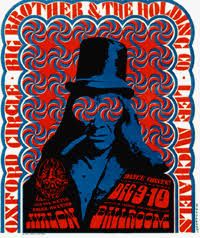Long Trip for Psychedelic Drugs
By Kristen Philipkoski
Wired News
 Psychedelic drugs are inching their way slowly but surely toward prescription status in the United States, thanks to a group of persistent scientists who believe drugs like ecstasy and psilocybin can help people with terminal cancer, obsessive-compulsive disorder and post-traumatic stress disorder, to name just a few.
Psychedelic drugs are inching their way slowly but surely toward prescription status in the United States, thanks to a group of persistent scientists who believe drugs like ecstasy and psilocybin can help people with terminal cancer, obsessive-compulsive disorder and post-traumatic stress disorder, to name just a few.
The Heffter Research Institute, the Multidisciplinary Association for Psychedelic Studies and others have managed to persuade the Food and Drug Administration to approve a handful of clinical trials using psychedelics. The movement seems to be gaining ground in recent years. Since 2001, the FDA and the Drug Enforcement Administration have given the go-ahead to three clinical trials testing psychedelics on symptomatic patients, and several more are on deck.
Doctors who saw their patients benefit from psychedelic drugs back when they were legal are dedicated to jumping through bureaucratic hoops and diminishing the drugs' party stigma to get psychedelics in patients' hands, and brains.
"I'm interested in the treatment being available to people who need it, and doing it aboveboard and publishing good results," said George Greer, founder of the Heffter Research Institute, a scientific organization that organizes and funds trials involving psychedelics.
At first blush, it seems like an uphill battle more challenging than the one medical-marijuana advocates have been facing. MDMA has been vilified by the National Institute on Drug Abuse and in news stories, making it seem unlikely that federal agencies will ever allow the legal use of psychedelics.
But it might actually be easier to get psychedelics through the approval process than marijuana, according to Rick Doblin, founder and president of MAPS. The roadblock with marijuana has centered on supply. A government-controlled crop in Mississippi is the only marijuana the government will allow in clinical trials. But the supply of psychedelics is decentralized, and the researchers have control of much of it.
CONTINUE
[Emphasis added. -v]







1 Comments:
War's Should Not Be Based Upon Dreams
President Bush dreams that fighting the Iraq war will free us from terrorism and democratize the Middle East on a scale never before witnessed in human history. Yet, Americans in ever-increasing numbers fail to share this delusion. This was apparent in the passing of parallel universes as recently contrasted by the NYC Republican Convention and the peace march. Let us hear those that cry out, let us see their suffering, and let us not be content to rationalize a dream, while war's victims live in a nightmare. A new book about war takes us out of our slumber and into the reality that shapes the future.
A Deadly Fog: Pith and Conflict, portrays war in its various manifestations, historically and as we witness war around the world, today, especially Iraq. Through stories, essays, poems and importantly art, it draws the reader through the voice of the poet and the eye of the artist in a relentless expression of how war brings whole societies to their knees, killing, maiming and displacing thousands of people, both civilian and combatant. Based partly on first hand experience and oft-heard narratives, the authors, an artist and a writer have endeavored to describe human emotion at the deepest levels of loss and longing. The work has been thoughtfully written so that although the subject is disturbing, the treatment is neither gruesome nor in poor taste. A Deadly Fog combines surrealism, realism, satire and irony set into a backdrop of unimaginable sacrifice, cruelty, and hubris, not as a paean to honor war, but to argue against its glorification. The authors hope to inspire others to raise their voices in protest against war as solution to problems in integration, poverty (starvation, sickness), natural resources (water, oil and land) and political ideology. The book previews at:
http://www.authorhouse.com/BookStore/ItemDetail.aspx?q3=3z9jgUFxsno%253d
Post a Comment
<< Home